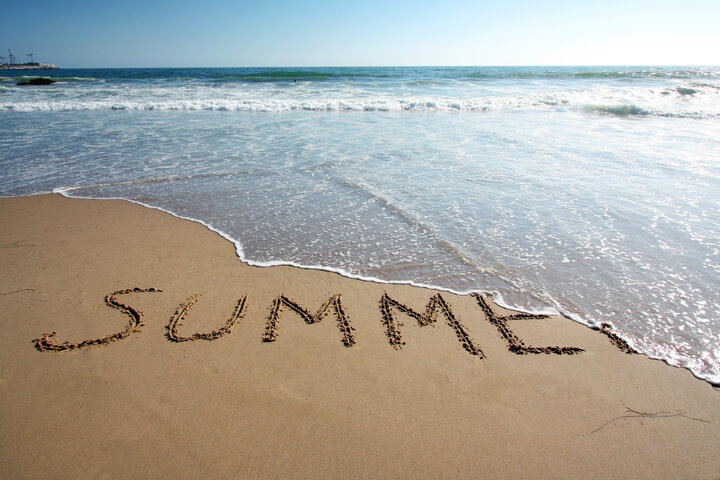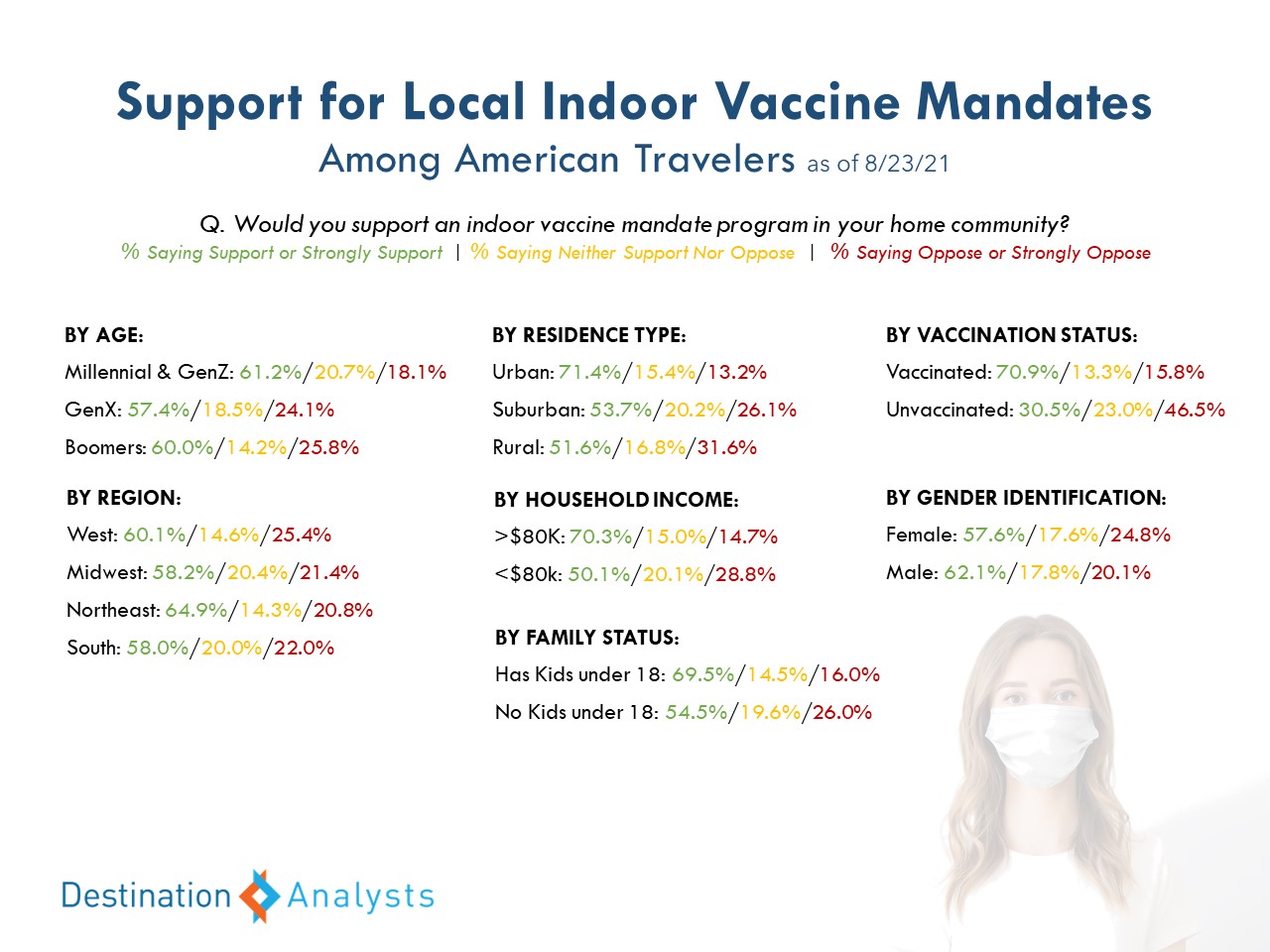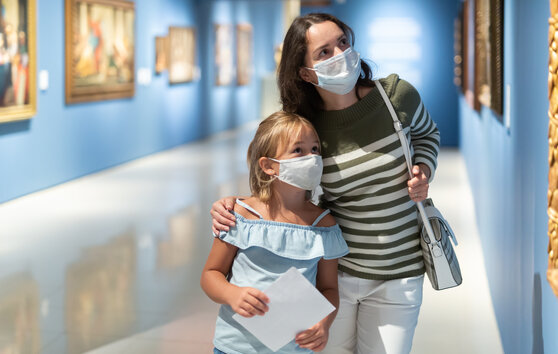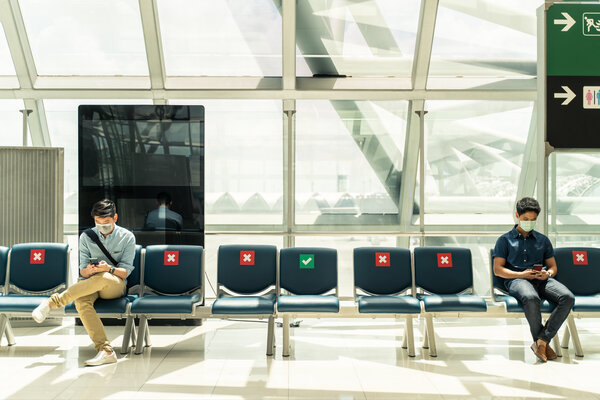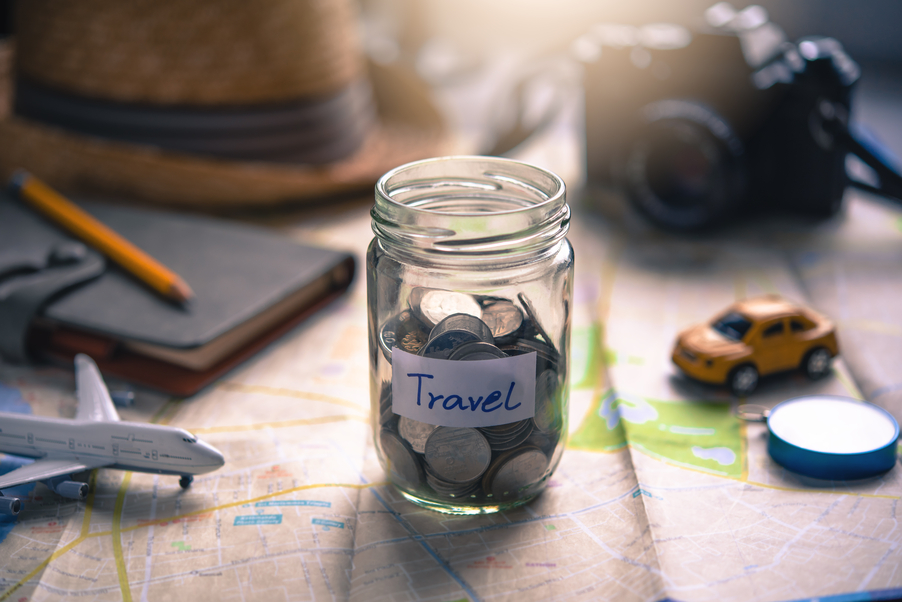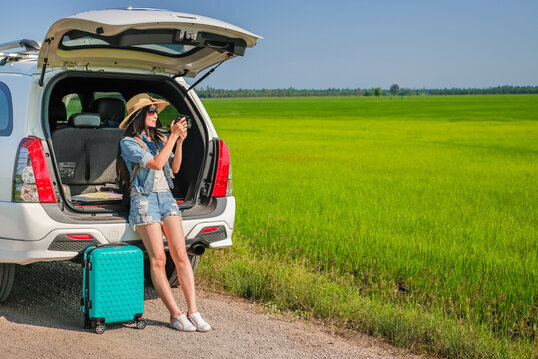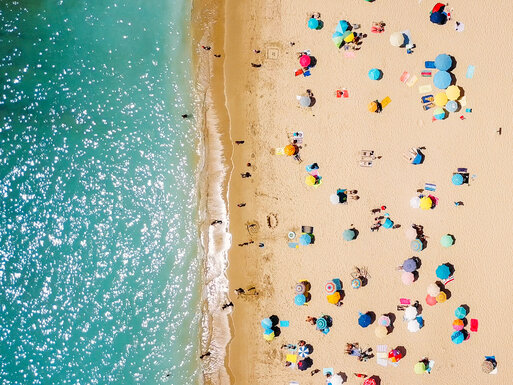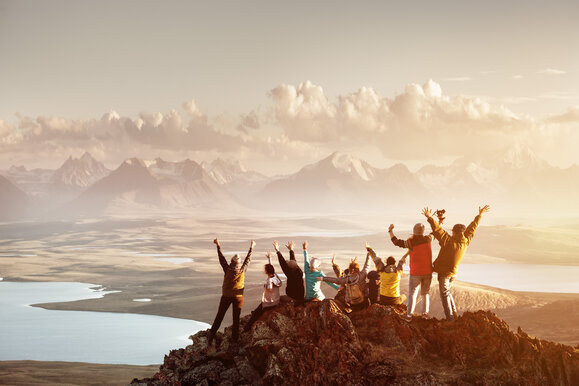A Window into the Current State of the Meetings Industry
During our webinar on August 23rd, Destination Analysts’ President & CEO, Erin Francis-Cummings, interviewed a panel of meeting planners to discuss what’s top-of-mind as they plan future events and how destinations can set themselves apart to gain their business.
You can watch the full panel discussion with meeting planners in the following video. Highlights from this discussion are presented below.
Although the Delta Variant is causing the live events industry to pull back again, as Miriam Davis from EventPro Productions shared, it is causing unevenness throughout different sectors. While some corporate events and trade associations have decided or are contemplating taking their Fall live events completely virtual, some industries are leaning on technological tools to keep in-person events going safely.
As Marshall Jones from Prestige Global Meeting Source shared, “There is a will to meet. This is how our country was built and we have to find a way to overcome.” He notes that he is not blind to the struggles of the meetings industry at large, but his clients are in the fortunate position of having higher discretionary incomes that allow their organizations to invest in technological interventions to keep their attendees safe such as:
The unfortunate reality is that not all organizations are in the financial position to institute such tech savvy but costly measures, so they instead must lean on their partners. As Marnie Hinkle from Synapse shared, “There are struggles, and we are back to having to make decisions and assessments day by day.” To help alleviate these stresses, planners are looking to their hotel and CVB/DMO partners to come to the table with solutions. “If I work with a good hotel partner, they say ‘How can I help?’ A bad hotel partner says, ‘What is your plan?’” The massive responsibility of keeping attendees safe is one that meeting planners do not want to shoulder alone and a common sentiment was, “Let’s work together and help each other.”
There has been a lot of disruption to the meetings industry because of this pandemic, but the communication and cooperation that is a core part of this industry will be its saving grace.

